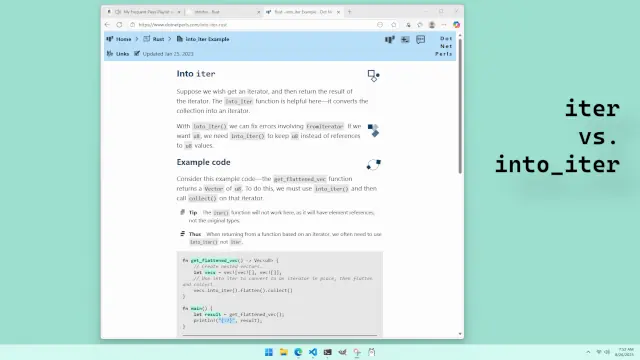Understanding iter and into_iter in Rust
Sometimes it is worthwhile to think deeply on, or reflect upon, functions you use often in a language. Consider iter and into_iter in Rust. These create iterators and then we can loop over elements in a for-loop.

As I wrote in my article about this subject, iter returns references, and into_iter returns the original values. But the key difference between iter and into_iter is not the return values—it is that into_iter consumes the variable—it is "moved" to the iterator's ownership. Iter meanwhile just acts upon a reference of the original variable.
This means that:
Into_iter can return the original values in the collection, as it has ownership of them.Into_iter will cause a variable to be unavailable for later use in a function.Iter can be called in multiple places in a function without any moved value errors.The important thing is that into_iter takes ownership of the collection, and iter does not. In Rust, the for-loop on a collection implicitly calls into_iter—for beginners, changing this to iter can eliminate moved value errors.